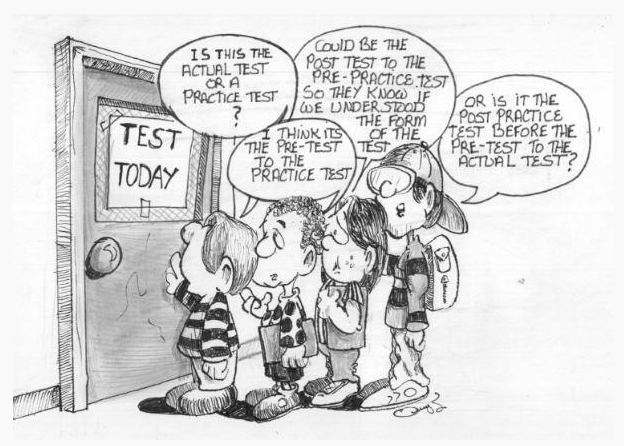By Randi Weingarten
Teaching is our heart. Our students are our soul. And the union is our spine.
I heard that sentiment over and over again this past week during the American Federation of Teachers’ biennial TEACH conference, one of the largest professional development conferences for educators in the nation. That’s right, a conference on teaching and learning, sponsored by the union.
The conference included sessions on a wide range of topics, as well as a daylong summit with an organization called EdSurge, where educators had the opportunity to give feedback on classroom technology products, and a town hall meeting with the AFT’s three officers, where members could ask or share anything.
Two-thousand educators descended on Washington, D.C., to learn from experts and one another, and once there, the theme was resounding: The voices of educators matter. Especially in an era of toxic debates and top-down dictates, the voices of educators matter.
Where educators are raising and combining their voices, the seeds of positive change have emerged. Collective voice, exercised through the union, is power — the power to drive real change for our kids, families and communities. The stories we heard this week speak for themselves.
Betty Nieves, a teacher at the School of Integrated Learning in Brooklyn, N.Y., discussed what it’s like to be part of a New York City program known as PROSE. This year, there were 62 PROSE schools in New York City. Next year, there will be 126, which means there will be about as many PROSE schools as there are charter schools. These schools, which were negotiated in the union’s first contract with Mayor Bill de Blasio’s administration, enable school staffs to change contract terms at the school level if they believe different terms will work better for their students.
“At the PROSE schools, teachers stay in the classroom and do the jobs that we love and also have leadership roles that allow our voices to be heard,” Nieves said. “The collaborative piece–it’s not just a buzzword. It does work. I honestly believe the more voices in that room, the better our chances of answering that question, of finding that solution, of better meeting the needs of our students.”
Afra Khan and Lily Holland, two Boston teachers, are part of the AFT’s Teacher Leaders Program. The AFT launched this program three years ago to empower teachers to help shape education policies governing our schools.
When Boston Public Schools reworked how it counted the number of students in poverty, whole neighborhoods were dropped from the free and reduced-price lunch program–a program that is a literal lifeline for so many children. So, today, Khan and Holland are digging into the research, trying to discover how the student poverty rate went from 92 percent to 68 percent overnight. They are determined to get their students the services they need.
As a teacher leader from Washington, D.C., Alicia Hunter, put it: “Every teacher has some aspect of leadership in them.”
Jamy Brice-Hyde is a social studies teacher in Horseheads, N.Y. Concerns about stress on the job inspired her and other teachers at the Badass Teachers Association to work with the AFT to design a survey on well-being, working conditions and stressors in schools. This spring, the 80-question survey–the first of its kind–was filled out by more than 30,000 educators from across the country. The results show professionals who, while determined to keep at it, are worn down after years of top-down, failed education reforms.
“We have results that show and prove to the federal government and policymakers the damage they are doing to public educators,” Brice-Hyde said.
The strength of the survey and its results led two U.S. senators to champion a provision adopted this week in its overhaul of No Child Left Behind. The provision will allow funds to be used for surveys of teaching and learning conditions.
And on Thursday, the Senate passed its version of a full Elementary and Secondary Education Act reauthorization bill. More than 100,000 AFT members and leaders raised their voices as the bill was debated over the past six months. And we hope the Senate bill will be the basis of a reset of federal education law and policy. We need a law that will drive funds to public schools educating large populations of disadvantaged students and eliminate the test-and-punish policies that have eclipsed teaching and learning.
After a decade of ideological policies that have narrowed the curriculum — but not the achievement gap — the tide is turning.
Through the union, educators are raising our collective voice. Together with parents and students, educators are turning the tide. We are working to make public schools places where parents want to send their children, children are engaged and educators want to work. When educators raise their voice and their power, we can reclaim the promise of public education. Join us.










